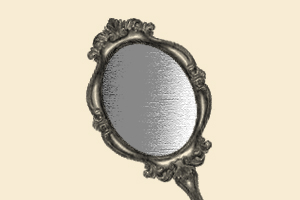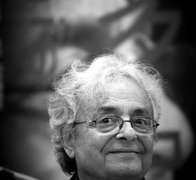
Adonis (Qassabin, Syria, 1930.)
I live between fire and plague with my language, with these mute worlds At the age of seventeen, he adopted the name of Adonis. Considered one of the world’s greatest living poets, Adonis is the author of numerous collections. In Arabic, he has written 30 poetry books and 29 essays books, a large number of which are translated into French and into 17 other languages. He is also editor of anthologies, theoretician of poetics, and translator from French into Arabic. He worked on collecting an anthology that reveals the great beauty of classical Arabic poetry through a 4 volumes’ selection known as the Diwan, add to this an anthology of Arabic prose in 4 volumes. He is also famous for his controversial opinion on Arab contemporary culture. Adonis has received 43 awards and honours including the prestigious Goethe Prize (2011) and became the first writer who writes in Arabic, awarded this important prize. He has 2 daughters, Arwad and Ninar. He has been a Lebanese citizen since 1963 and living in Paris since 1986. He is a professor of Arabic at the Sorbonne University.
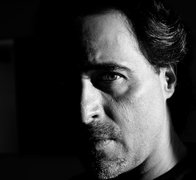
José Eduardo Agualusa (Huambo, Angola, 1960.)
writer and journalist
I was born at the height of two thousand metres, at the central plateau of Angola. But after I was taken to have a look at the sea, I couldn’t live far away from it any longer. I love spacious terraces leaning over the blueness of the sea along with deep and moist yards covered in banana palm trees and high grass. I love the smell of green guavas. I love small and ancient coastal towns as Benguela in Angola, Olinda in Brasil or the Island of Mozambique in Mozambique, in which people take out the chairs into the streets in the evening and talk with their neighbours. I also love to talk with my neighbours in the evening while in those towns. I started writing in order to try to understand human cruelty. I am still writing since I haven’t figured it out.
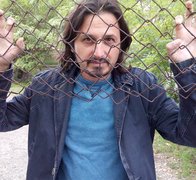
Amir Alagić (Banja Luka, 1977.)
writer
I was born in 1977 in Banja Luka. After a while, the maternity ward was transferred to a newly-built hospital, and the old building complex transformed into a mental hospital. So it turns out I was born in a nuthouse. A person cannot help themselves not to see certain significance in the fact that from this very place they cast off into the world, letting go their very first cry. In the meantime, all sorts of things not exactly worth mentioning have happened, so after all those years, every time I look around me in a more serious manner, it seems like I have never left the nuthouse. I am living in Pula at the moment, far enough from my birthplace to lose the idea of homeland, not being able to accept neither “here” nor “there”, slightly fooling myself into keeping away from my initial dwelling place just so I don’t end up in a place where I had once begun. Even if a nuthouse can be created from a maternity ward, a maternity ward cannot be created from a nuthouse.
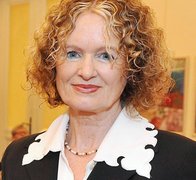
Branka Arh (Kerestinec, 1945.)
art historian
Why are arts and writing my calling? I cannot tell. I only know that I am trying to get an insight into life, its secrets, its meaning, into the things which keep it from falling apart. I try to scratch under the surface, under the skin of life, to embrace its beauty and its wounds from the inside. I do it in order to elucidate to myself and to the people around me the mystery of creation, God’s gift of looking with internal eyes: the way in which visible and palpable reality arises from the invisible and impalpable thought, the way a tone sounds in an image, music and verse and the way in which the line starts to tremble when it creates vulnerable fissures within the creator-self. The way in which a person leaves its inerasable trace within time and space.
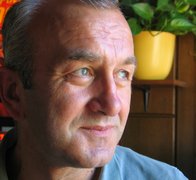
Krešimir Bagić (Gradište, 1962.)
poet, critic and literary stylistics
During conversations about poetry I sometimes used to say that the poet’s thought is hovering and that he cannot know where it comes from nor towards where it leads. In those moments I couldn’t anticipate that my own verses would catch up with me. And it seems like that is exactly what has happened. Twenty years ago I wrote a poem A Cup of Tea. I concluded it with a distich: To no lands should we travel. / Here are both the hill and the valley. Lately, I tend to remember those verses more often. Dubrava, a neighbourhood in Zagreb, has become the centre of my world, a place from which I try to understand people and events and overcome distances. Although I usually feel comfortable wherever I go, less and less do I physically leave Dubrava. I satisfy the passion for traveling with reading. In the world of texts, I find exciting places, surprising thoughts, interesting collocutors. Every now and then a hill blocks my way or a valley stretches out in front of me, and my surrounding shines bright. From time to time I take a step into that world – by the means of verses or testimonies about my reading. In both cases, the view from Dubrava is the one in action.
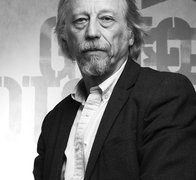
Vladislav Bajac (Beograd, 1954.)
writer and publishe
He is a novelist, a storyteller, a poet and a publisher. He has studied at the Department of Yugoslav and World literature at Philological Faculty. Along with writing, he has engaged in journalism, literary translation and publishing. He is the owner and the everyday prime mover of Geopoetika, one of the best publishing houses in this part of Europe. He is exceptionally active and enthusiastic, one of those intellectuals and literary devotees who are capable of resurrecting the world out of the ashes and creating a whole new culture without any help from the community. In his work Vladislav Bajac stands for a quite big state institute for literature and art, publishing, and many other things. During the last several years his prose books, among whom Hamam Balkania the most, have been some of the most translated Serbian books in the world.
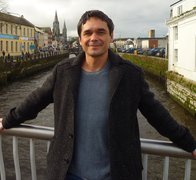
Tomica Bajsić (Zagreb, 1968.)
writer and translator
I have published four books of poetry, two prose books, and a picture-book. I have selected, edited and translated four international anthologies of poetry. At the 22nd Book Fairy in Istria I am presenting my travelogue with photographs under the title Amazon Breathes – the School at the Far Side of the World. It is a story about people in the Brazilian Amazon which are being driven away from their natural habitat by means of cutting and burning the forest down. As a consequence, they are ending up in the favelas of Manaus, São Paulo, and Rio de Janeiro. I visited a small community which, with the help of a small school, a satellite and a small medical unit, is trying to survive in the area of Xixuau, situated in the heart of the Amazon, near the equator, thirtysix hours upstream from Manaus, following the rivers Rio Negro and Rio Jauperi. It is a place which could be called the end, but also the beginning of the world, because in this labyrinth of rivers and its tributaries, unique plant and animal species which inhabit the ancient hummus of the rain forests, one can witness the first sunrise on the planet Earth.
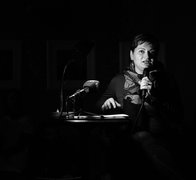
Slađana Bukovac (Glina, 1971.)
writer and journalist
Is there anyone else who shudders when asked to write their short biography? And then stares into those two lines they have put into words so far – first containing the year and place of birth – and the whiteness of the rest of the page shining? At that point one gets struck by the deep existential crisis: Where have I been? Nowhere! What have I been doing? Nothing! What information does actually have the privilege to enter this prestigious page where the most important accomplishments in one’s life should be listed?! And here’s a question more serious than that: do I even have any accomplishments or do I just go with the flow? Should I publish this instead of my biography??? (Taken from Slađana Bukovac’s Facebook page)

Norma C. Rey (pseudonim)
writer
Although she was reluctant to be born for nearly twenty years, it still happened around 18 years ago, somewhere in the high Alps in late, rainy summer. As a present for her birth it gave her a Rainbow, as about as real as it gets, the most powerful celestial sign of the literary horoscopic sky. This unusual set of events, connected to the decisive refusal to simply grow up, spawned on the same night the first few pages of her fantasy novel of a not really coincidental title: The Breakthrough. From a Godotian point of view, the thing was meant to end in disaster, but obviously the Rainbow interfered at some point. Some will find the Midget Glossary a collection of stories whose length varies from a few sentences to a few pages. In the end: Whatever happens to you during the reading, don’t blame it on Norma; she is just trying to share her enchantment with the Rainbow with others.
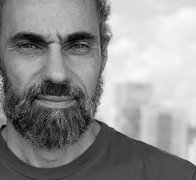
João Carrascoza (Cravinhos, Brasil, 1962.)
writer
1) I was born in a small Brasilian town, where all the people are close to each other and all the things near at hand. 2) I love to read and write. Those passions emerged when I was a boy. I have learned that reading the world is as beautiful as reading words. 3) I have also discovered that I can be inscribed into the world and the people. At that point, besides being a reader, I also became a writer. 4) My stories catch people in the moments of drawing near or growing apart when they can tell everything even without words. 5) It is not a coincidence that one of the main characteristics of my work is – silence, the things left unsaid. 6) I am interested in the little things of the everyday life, which define or broaden the borders between people. 7) I write out my pain, but also my joy for the boy which I used to be and which I still am. 8) The titles of my books reveal the general outline of my work: Notebook of a Missing Person, The Volume of Silence, Thorns and Pins, Small Loves, Rare Days.
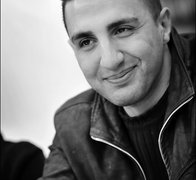
Najwan Darwish (Jeruzalem, Palestina, 1987.)
poet, journalist, editor and critic
I’m not plagued by nightmares; these nightmares are fabrications. My biological clock isn’t ticking, I have no quarrels with the Sun, and I did not inherit any genetic disorders… Those labels are all fabrications. I, too, a fabrication. Not only because I am, but because all pronouns are fabrications.
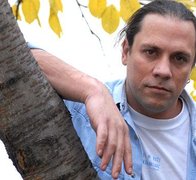
Boris Dežulović (Split, 1964.)
journalist and writer
Writer, poet, satirist and columnist. He writes for different media and newspapers in the region and he is one of the three founders of Feral Tribune weekly. After graduating in Art History, he worked as a sketch artist, editor, actor, writer, screenwriter and bass guitar player in a punk band. Author of novels, short stories and a collection of poetry. His columns frequently address the most burning and painful issues of Croatian social reality, always in his idiosyncratic hilarious style, with paradoxical imagery or linguistic wit. Behind his satirical texts there is serious social commitment, democratic spirit, profound humanity and ruthless sharpness. This is how he became an indicator, rarely to be seen in Croatia, of daily symptoms of political corruption. “Boris Dežulović is one of those writers who write at the cost of their own life,” wrote Miljenko Jergović about him recently. And while he is doing it, one might add, the readers do not know if they are crying tears of joy or despair.
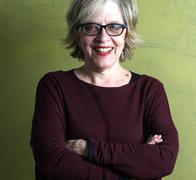
Slavenka Drakulić (Rijeka, 1949.)
writer and journalist
I always get struck by the question “Why do I write?” The answer is simple – because I cannot do things differently. I had tried. I had worked as a babysitter, a secretary, a waitress and a high school teacher. I had been doing that until I got hired as a journalist, which was the moment when writing became both my profession and my vocation. Since then I have been writing novels and essays, analyses and comments. Some of those works have been collected in the 14 books published so far. When I was once teaching creative writing I was telling students that prose writing didn’t pay off and that they would have to do something else in order to earn money. You can write only if something from the inside is forcing you to do it; you have to have an extraordinary strong motivation to be able to endure it. In my family I am surrounded by writers: my daughter, Rujana Jeger is a writer, so is my husband Richard Schwartz and a lot of our friends and acquaintances. In short, I cannot do without writing – being it mine or somebody else’s. Nor can I do without reading, because those two go together.
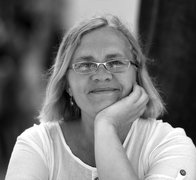
Slobodanka Boba Đuderija (Šibenik, 1963.)
writer, blogger and columnist
I couldn’t really say that I chose writing, that it was an act resulting from a conscious decision or some ambition. It first started as excessive, obsessive reading at a very young age. When my passion switched from reading to writing I started hiding it – I thought I had some sort of disorder. Now I don’t think, I know for sure. But, it doesn’t matter, if a person has to have some sort of disorder, this one is the sweetest of them all. 68
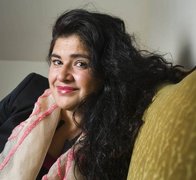
Lucía Etxebarría (Valencia, Španjolska, 1966.)
writer
I experiment particularly intense feelings. I am awkward in social interactions. I don’t fit social stereotypes. I cannot stop thinking, and sometimes I work myself writing to exhaustion. I need periods of contemplation, solitude. I question rules or authority. I am able to run my mind on multiple tracks at the same time. I tend to be very independent. I have maintained my childlike sense of wonder. I am deeply disturbed by inequity, exploitation, corruption, and needless human suffering. I am highly sensitive, perceptive and insightful. I am fascinated by words. I am an avid reader. I love music, art, poetry, photography, nature. I thrive on challenge. I feel outrage at moral breaches that the rest of the world seems to take for granted. I value and will defend diversity. I am bisexual. Feminist, Fifty, and Fabulous.
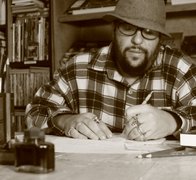
Reginaldo Ferreira da Silva - Ferréz (São Paulo, Brazil, 1975.)
writer
For forty years inhabitant of one of the biggest favelas in Brasil, this boy from the outskirts of Sao Paulo invented his own name by merging the names of two Brasilian revolutionaries: Lampião (Virgulino Ferreira) and Zumbi dos Palmares. He has worked as a salesman, auxiliary worker and an archivist. His first book had been selling in the favelas of São Paulo, passing from hand to hand, where the Scripter from the Ghetto, as he used to be called at those slopes, claimed his fame. A rapper by attitude, he left the verses behind and dedicated himself to words when he realized that information could serve as a cure. He is living in São Paulo where he works on his own brand of clothes and books, also writing a blog about pugnacity and the culture of periphery. He tends to say that a writer doesn’t have to be a toady and have an employer.
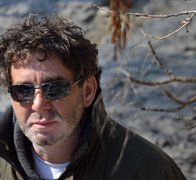
Silvio Forza (Pula, 1966.)
editor and journalist
I was born on 7th July, on the same date as Miroslav Krleža. It didn’t help much. Unfortunately, astrological coincidence is the beginning and the end of every resemblance with the mentioned great man, starting from the banal fact that I am not a writer. However, I enjoy editing, because it is above all a designer-architect task of organizing book space. And when somebody is engaged in humanistic disciplines, that feeling of “building” and leaving a palpable trace is a real healing balm for the frustration of realizing that the brick stays a verba volant. I don’t have a clue why I started this text with horoscope when I really don’t believe in astrology. But instead, I believe that there is still a reason for reading a good book, and for constantly insisting on its conservation. Why? As Krleža once said: “Books have never burnt without human bones cracking.”
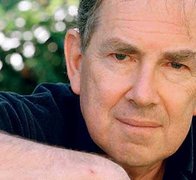
William Graves ( London, 1940.)
geologist and writer
I am a geologist by profession, not a writer. I started to write when, after being made my father’s literary executor I found that his biographers had not painted a true picture of our life in Mallorca: hence Wild Olives. It is so far my only foray into “literature”, although I did edit his Poems about War and translated his The White Goddess into Spanish. Indeed, for the past 30 years I have looked after Robert Graves’s literary affairs, dealt with literary agents and publishers, and set up a Trust in Oxford as a study centre for his manuscripts and letters. I am a founder member of the Robert Graves Society, also on the board of the Fundacion Robert Graves, run by the autonomous government of the Balearic Islands, which acquired his house in Mallorca when my mother died in 2003. It is open to public and I am the director. My wife and I live in Palma and have celebrated our golden wedding anniversary. Our son and daughter live and work in London.
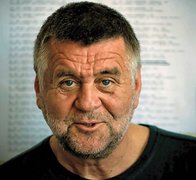
Rajko Grlić (Zagreb, 1947.)
film director and screenwriter
I am really sorry I am going to miss the Book Fair(y), Pula, good company... Would you just contact me for the Skype call two days in advance, so I don’t forget about it. Here you go, the “extensive” biography: He was born in 1947 in Zagreb. He mastered in Live Action Film Directing at FAMU, Prague in 1971. He lives and works in Croatia and the US. I send you warm regards and I wish you a good Book Fair(y). Rajko
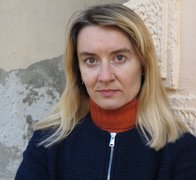
Tatjana Gromača (Sisak, 1971.)
writer and journalist
Comparative Literature in Zagreb. I have worked as a journalist for Feral Tribune, and for Novi list. I am currently living in Pula. I am a wife and a mother. Until now I have published: Something’s Wrong (poetry), The Negro (a short novel), 2004, White Craws – a Story from Istria (a selection of reportages), God’s Children (a novel), States of Rapture, Resentment, Enchantment (lyrical prose), The Sickness of the World (a novel). Some of my books have won awards and have been translated. I am cooperating with HRT’s (Croatian Radiotelevision) third channel in the form of literary and essayistic works. 9
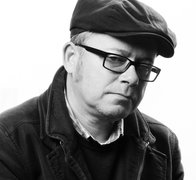
Ivica Ivanišević (Split, 1964.)
journalist and writer
I read and write, and that is the only thing worth saying about me if, of course, there is anything important to say at all. There are just two questions to be answered. Why do I read? If I were to be bound only to my family, street, town and country it would be unbearable for me. Books about other families, streets, towns and countries have saved my life. Why do I write then? At some point you let yourself be led by the foolish belief of being able to save somebody. Then they tell you how many books you have actually sold, and in that moment you realize… Still, you can easily console yourself: you write about other people’s lives in order not to handle your own.
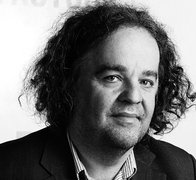
Miljenko Jergović (Sarajevo, 1966.)
writer
“Are you seeing anybody?” Each time he pays a visit to Zagreb, my Montenegrin friend asks me the same question. He is interested in how I am getting along with the local authors, so he asks in a polite manner, indirectly, with a dose of hope. “Seriously man... God forbid I would look at any of them!”, I respond, trying to be his equal in the matter of language. That’s how my biography looks like in the late fall of 2016 – full of concerns about the language. Faithful to the same principles, I write; I am constantly trying to be worthy of the words and sentences coming from the good writers whose books I am currently reading. I am putting in the same amount of effort as I do when trying to live up to my friend’s question. To its content, but much more – its form. Because in this case, the form has set the boundaries of the content. Everything I put my signature on I have written myself. When I talk, I don’t like somebody talking at the same time as I do. In the year 2016, I haven’t put my signature on any of the common proclamations, petitions or opinions because, I don’t take part in raising hues and cries. And because I wouldn’t even sign the Universal Declaration of Human Rights with the ones I am not seeing. I will always prefer seeing the despised one. And even when he is not right, he is just a single person while there is a lot of them. Maybe literature arises from that thing of his, but from theirs – never.
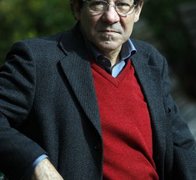
Nuno Júdice (Portimão, Portugal, 1949.)
writer and essayist
I wrote my first poem when I was eight years old. I wrote it inspired by readings of poetry on the radio. It posed an important moment for me because I cannot separate the writing of poetry from the sound of words, from the music of language. The difference between poetry and other texts, like fiction, is that a poet cannot ignore the effect of reading and must be conscious of the phonetic use of words in writing, not only of the sense. That doesn’t mean sense is not important: the poem must communicate something even when the sense is obscure. I compare it with the sacred texts and poetry is a survival of that moment when language mediated between man and the transcendent, even if the subject of the poem is the most banal event of every day’s life. And that is the fundamental purpose of the poetry I write: to express a subject, a character, a voice behind each word, and make the reader feel the presence, and hear the ancient voice of a messenger that travels across generations and cultures.
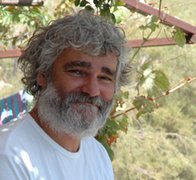
Senko Karuza (Split, 1957.)
writer
Why Do I Write or On Despair Sometimes I get caught up in despair. For hours I sit, smoking one cigarette after another, the scenery slowly fading until it ceases to exist and a completely different world appears in front of my eyes. Why have I decided to live here? Would it be better if I were to be somewhere else? Am I even capable of planning things in my life or do they just happen spontaneously? Am I the real owner of my own life? Why do the things always look different beneath the surface? Would I be different if I were to be somewhere else? Why don’t I believe? Why do I remain faithful to all the things I stop loving? Can the sense of security compensate love? Can every passion wear off at some certain point and turn into boredom? Is there such thing as steadiness? What if until the end of my life I don’t feel anything else but the things I have already felt? Is there any sense in posing questions which cannot be answered? Is there anyone who would have the answers for me? Why do I get caught up in despair?
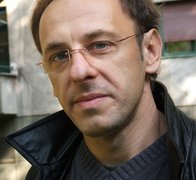
Marinko Koščec (Zagreb, 1967.)
writer
I was not born in 1968, in Bjelovar. I got lost there for the first time at the age of three. After that, I have been getting lost so often that it can be called, without any reservation, my basic life strategy. It doesn’t, as a matter of fact, require any special effort since it is enough for me to turn around to lose the way I was about to go. That is, on the other hand, quite practical when it comes to finding alternative ways. And that’s what interests me more than any destination.
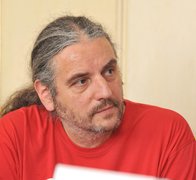
Predrag Lucić (Split, 1964.)
journalist and writer
On one past occasion, it doesn’t matter which one, I had to present in short my book in the making. I managed to come up just with two sentences: “The book consist of pious carols and satanic ditties, of poems of the road and the ones historically wayless, of Dalmatian anti-tenorial incantations not aspiring to the traditional klapa musical form, of the poems lost and gambled away, of lyrical outbursts and epical downfalls, of free verses and versificational artifices. It represents the authentical testimony of lost time and undiscovered space, in which the lyrical subject is problematic by its existence, while the predicative group is calm and dignified”. There have been some serious doubts that I might have been writing this book all of my life. 78
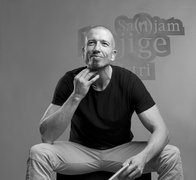
Davor Mandić (Pula, 1976.)
journalist and writer
When a person decides to write a novel they discover peculiar things about themselves. And there are also things they discover about the town they grew up in during the period in which the novel is set. They face, for example, the terrifying reality that they are in a need of hiring a language editor, since they are not able to reproduce the speech from the formative years of their lives. They can figure out even something more terrifying than that: the feeling that the people who are (or were) close to them, who weren’t thinking about the difference between the story-teller and the author, might start confusing fiction for a fact, finding dangerous relations what could result in harming their relationship with the author. But they also find out they don’t actually care for all of this, because the most important thing was to write the story; the novel, the one we all carry within us, and just some are unlucky enough to actually write it. Pula is one of the important characters in that story, Pula is the place of its premiere, and Book Fair(y) in Istria represents the space in which it will make a step into the world on its insecure feet. While I am writing this I’m actually realizing it for the first time.
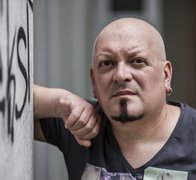
Nenad Marjanović Dr Fric (Pula, 1964.)
journalist, musician and writer
Musician, journalist, writer, actor, trouble maker, in a word – a sold soul. I enjoy the fact that my book will get on some people’s nerves and that I have been doing this for years, consistently, through various media. In my book Devil’s Machine (Vrajža Makina) I write how I lived from music for almost 20 years, and I am not a musician; my mother had entrusted me a piece of land in Betiga so I could be registered as a farmer. For a year I was a farmer, I paid the taxes although I was playing punk rock all over the “ploughed up” lands of former Yugoslavia. When we, as KUD Idijoti published our first single It is Better to Sell a Record Then a Friend, the promotion was held under the name “If We Managed to Publish a Record, Anybody Can”. We put on the stage a Tosca 20, a bass drum and a snare, a microphone and guitars on the stands. After only a few bars the gramophone fell off the stage. A band which has become and continued to exist as a synonym for rebellion played four of its songs on playback. I made this whole introduction so I could write this - I am glad I will be attending the Fair this year as a writer. So if I can be a writer then every fucker can.
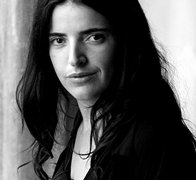
Bejan Matur (Kahramanmaraş, Turska, 1968.)
writer and columnist
Bejan Matur is the most illustrious poet among a bold new poetry direction emerging from the maelstrom in the Middle East. She is descendant from a Kurdish Alevi family in Eastern Turkey. She has been jailed by the Turkish regime during her university studies. Bejan’s poetry is dealing with her people’s struggles. Her first book (translated to English), In the Temple of a Patient God, refers in stark terms to stateless people’s exodus. And yet there is always this palpable mysticism in her writing, close to nature, imagining dragons and leopards, meditating on creation – a dialogue with God. Or what her translator calls “an endless spiritual quest to understand the nature of being”.
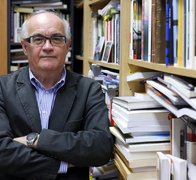
Krešimir Nemec (Županja, 1953.)
literary scientist
I work as a professor of Contemporary Croatian Literature at the Faculty of Humanities and Social Sciences in Zagreb. I love my job and I consider myself a lucky person because I am able to do exactly the thing I am doing. There is no greater joy for me than to enter a classroom. I am constantly surrounded by books, reading is my passion, I cannot imagine life without books. I love Krleža and Andrić, Ujević and Šop. From foreign classics I love Dostoyevski, and from modern authors Amos Oz. Otherwise, I am an aged rocker, a great fan of the group JethroTull and L. Cohen. Apart from several thousand books, I also own a collection of various kinds of sound recording mediums, both from local and foreign rock bands. I also listen to classical music – Mozart and Bach. I like to play cards with my friends, and I play chess against the computer on a daily basis. That’s all folks!
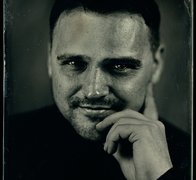
Kristian Novak (Baden-Baden, 1979.)
writer
I was born in 1979 in Baden-Baden as the son of gastarbeiters from Međimurje. It is not a secret that those people are governed by the longing for a homeland which doesn’t exist anymore and maybe never existed. I started writing because I was trying to imagine and settle in a place which I could truly call my own. I am still writing because I am still looking for that place. If I had to compare the state I find myself in when writing with any other state, it would be a combination of the ultimate fear (of the unknown or the known, but unspoken) and the ultimate excitement (originating from the discovery of something completely new), as it would be, I suppose, when it comes to any other quest. My great wish is to once write “something that won’t make anybody angry” (for my mother), and “something that ends happily” (for my wife), both of them being undertakings of fear and excitement.
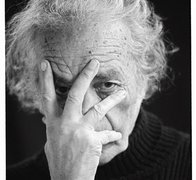
Nicanor Parra (San Fabián de Alico, Čile, 1914.)
(anti)poet, mathematician and physicist
Epitaph Of medium height, / With a voice neither shrill nor low, / The oldest son of an elementary school teacher / And a piecework seamstress, / Naturally thin / Though fond of good eating, / With drawn cheeks / And oversize ears, / A square face, / And slits for eyes, / And the nose of a mulatto boxer / Over an Aztec idol’s mouth / All this bathed / In a light halfway between irony and perfidy / Neither too bright nor totally stupid, / I was what I was: a mixture / Of vinegar andolive oil, / A sausage of angel and beast! (Antipoems, translated by Jorge Elliott)
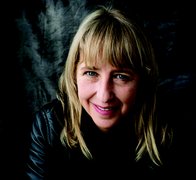
Inês Pedrosa (Coimbra, Portugal, 1962.)
writer and translator
I published my first novel in 1992. Since then I have been publishing novels and short stories, biographical essays, chronicles, interviews, anthologies of poetry and short stories. I have graduated in Communication and I’m currently working on my doctorate thesis in Literature on the works of Milan Kundera. I worked for various newspaper agencies. At the moment I’m running a political analysis show on Portuguese television and a radio show about literature. Apart from that, I’m translating French authors. I believe that literature can change the world, because I am an antimilitarist and because writers, even bad ones, are in most cases more efficient than politicians.
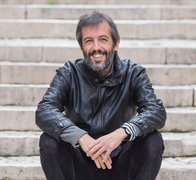
Jacinto Lucas Pires (Porto, Portugal, 1974.)
writer, playwright and film director
I’m a writer and a playwright. My last novel The True Actor was published in the US by Dzanc, translation by Jaime Braz and Dean Thomas Ellis. My new short-story collection is called Grosso modo. I’ve written three novels, two short-story collections and two non-fiction books. I’ve also written several theater plays, staged by different groups. I’ve directed three short-films and a feature film. I am a member of the the band Os Quais. 23
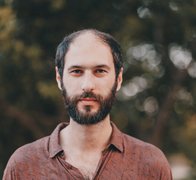
Marko Pogačar (Split, 1984.)
writer and literary critic
One can travel out of necessity, curiosity, for leisure, in order to satisfy some deeply rooted strive for change or for some other reason. One can travel over the world, through somebody else’s or their own room, across the invisible maps of the mind and who knows where else. One can, in the same way, travel across the language. The strongest concentrates of this odysseys have a name – in the dictionary, we can find them as one of the meanings of the word “poem”. Those little maps are written in a way that they always show the right path, this path being different each time and for each person. We call their atlases books. If you prefer math to geography – it’s all right, we come in all shapes and sizes – you can look at poems as if they were equations – numerical shortcuts, short circuits in the immeasurable line of digits heading to a certain point; a sort of satori, enlightenment. In case you prefer Sunday school, we don’t have anything in common. Poetry is a way of denying God, of biting the pretzel of death. Everything worth mentioning in a biography (even that word is synonymic to poetry to a certain degree since it contains the meaning of describing life) has already been put into words – to travel: to write poetry.
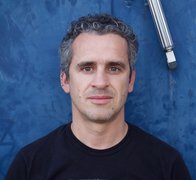
José Luís Peixoto (Galveias, Portugal, 1974.)
writer
I was born five months after the revolution that ended fifty years of dictatorship. I was born in Galveias, a village of over one thousand inhabitants in the interior of Portugal. I lived there until I was eighteen years old and that’s where I played guitar in my first punk/hardcore band. I selfpublished my first book in the year 2000 – a memoir about my father’s death, published in Croatia under the title Umro si me. I won the José Saramago Award with my first novel – published in Croatia under the title Nijedan Pogled in 2004. I travel constantly so I’ve published a book about North Korea, a country that I’ve visited four times. My oldest son is nineteen years old and studies computer engineering. My younger son in twelve years old and I have a nine-year-old stepdaughter. I feel that I’m currently living my best years. I’m doing very well.
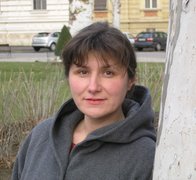
Evelina Rudan (Pula, 1971.)
croatist and poetess
I was told that this biography should be a personal response to the question “why writing, in what way writing”. With the danger of presumptuousness of a question conceived in that manner in mind, the first answer to that question would be: because I was an asocial child. The second answer: because no one would give me a job which would involve just reading. The third answer: because the ways in which words are being assembled, the sort of memory they possess and the thing they produce have a certain charm and favour a pleasure not completely soluble by explanations. Fourth answer: because the quest for this solution requires discipline and freedom in the right proportion. The fifth answer: a) because it ensures a taste, as mild as it might be, of creating the world (as for poetry); b) because it ensures a taste, as mild as it might be, of the quest for the interpretation of the world (as for a scientific text). The sixth answer: because reading and writing render a certain type of soft transitions, shades, the visibility of the invisible, the closeness of the “Other” and the loneliness of oneself possible, at the same time serving as a connection with the dead of the past and the living of the future.
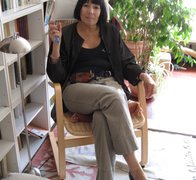
Teresa Salema (Lisabon, Portugal, 1947.)
writer
Across Spaces and Times My characters are real people – they become real in the moment they take shape within the flux of the stories. At that point, their relationship with the author becomes twisted, then as an author I joyfully greet their freedom to be alive between two book covers and inside the imagination of the reader. Contrarily to what some authors might defend, I think that an author who writes fiction has but a narrow path of creation; if some responsible claims are to be followed, and if the extremes of either depicting ugly, perverse characters and situations or tracing utopic scenarios are to be excluded. The dramatic interaction between the characters within the world has no autobiographical features, yet it remains in a certain sense autobiographical since, as a critical and self-critical individual, I prefer to explore the historical contradictions between rebellion and compromise, tenderness and grieve, hope and regret, etc. A story remains for me a place, an atmosphere. Therefore, I remain most sensible to the European and Mediterranean traditions.
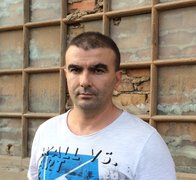
Nenad Stipanić (Senj, 1973.)
writer
I was growing up with my grandma, without parents. I have done various jobs in my life: I was a manual worker, a bouncer in casinos and clubs, a bodyguard, an employee in a museum, an art dealer and an owner of a gallery, a scriptwriter, and a journalist. Those were the years of war and transition, times when perspectives were distorted. Through reading books I was fleeing the world I didn’t want to live in, but owing to books, I realized I could create my own worlds. I set about writing in a more serious manner around the age of 21 when it got intertwined with the experience gained on the street and through reading. I first wrote short stories, then plays, scripts for TV series, later I wrote novels. I have participated in various art projects and performances; I have performed on stage as a storyteller. At the moment I am working on a conceptual art project which includes the exploration of the framework of one’s personal Utopia through the means of art and technology. I am interested in human subconscious, the surreal, the absurd, the bizarre. katalog
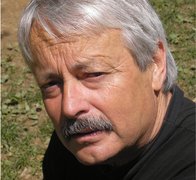
Slobodan Šnajder (Zagreb, 1948.)
writer and publicist
I was born on 8th July, a day after Krleža’s birthday. Just a month later, Stalin’s nark and headhunter Zhdanov, the one who ruled over writers of the national democracies, died. As one might say, the world had been well prepared for my arrival. The address is also not among the worst in Zagreb: Vinogradska. Just three days after I had lifted my head out of the bag, the discharge letter of the maternity hospital said that “the healthy male child MOVED”. This was, actually, a sort of an omen: I was really moving. I learned to write in the first grade and I have been writing almost constantly ever since. Considering the fact that I have had quite a long life, a lot of that has cumulated. At the moment, after the finishing works on the novel The Brass Age (Doba Mjedi), I am lying fallow.
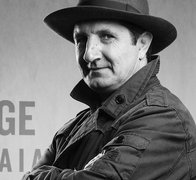
Ante Tomić (Split, 1970.)
writer, journalist and screenwriter
I have been writing since I was knee-high to a grasshopper, since the first grade; my shoe size was, I remember, 33. However, my first prose texts, Spring in my Homeland, How I’ve Spent my Summer Break, and Tito, the Lighthouse of Peace haven’t given rise to a significant interest among the readers. Also, when I published my first book in the year 1997, (shoe size 47 or 46, if the last of the shoe is bigger), only my closest family and friends read it, and I even doubt that all of them actually read it, at least not entirely. Still, my following works turned out to be more successful. I am, my children, a living proof that persistence is worthwhile. I continued publishing stubbornly as a mule and, despite my moderate talent, I have become one of the most read Croatian authors. Movies made according to my scripts have record-breaking viewing figures. In my spare time, I engage in cardiac surgery.
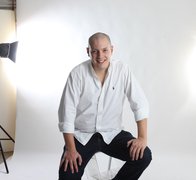
Diogo Vaz Pinto (Lisabon, Portugal, 1985.)
poet
I am keeping company to second-class monsters in a worn out country with a dead legend playing on the radio, entertaining tourists, a wind up country, a can filled up with people who, as if they were traffic signs, are not capable of knowing each other, supporting actors producing scenarios of a slow demise, their barricades erected, their resistance reduced to spiritless gestures, as if they were some religious devotees crossing themselves. I studied law only to find out that laws are the most boring fiction existent in that country. Over the last few years I have been writing for newspapers which are arriving every day to the news-stands in a manner of paper boats, floating randomly in a fountain of some atrocious garden. As for my genuine abilities... I pretend that I believe in “reality”. I am aware that it is a hopeless bedtime story. I write the things I can conceive within the language which carries the feeling of condemnation. Still, I adore its poison, deep and intoxicating repercussions of those who have visited this country, lost steps of the people which got carried away with one ancient memory after which we don’t yearn anymore – what makes it the saddest part of it all.
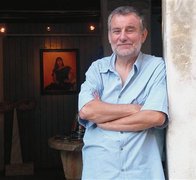
Rok Zelenko (Ljubljana, 1951.)
painter
I engage in this in order to kill time. The time, my heartbeats. Dum, dumdum. Duuum... is it beating alright, should something be done about it? The pain of waiting is unbearable. Time needs to be killed... So I have killed half a century in the same manner. One day my doctor says to me: “You should listen to your heart more, the screeching of your bones, and the feeling of dizziness.” I’m thinking: have I managed to do something? I started scratching all over my past and put the scratches down next to one another. And that’s it. That’s all I’m offering to you.
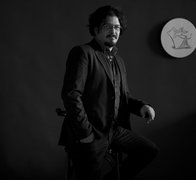
Igor Zirojević (Pula, 1967.)
photographer
As a kid who loved chemistry and art, I saw photography as a sort of alchemic compound of one and the other and as such it was meant to be my profession. I have been wandering through many occupations for a long time; I graduated in Architecture, I worked as an illustrator and a designer, but photography has remained a sole constant for me and today it is the main determining factor of my life. A friend of mine once introduced me as an architect-photographer. It is maybe the best definition of what I am.
.
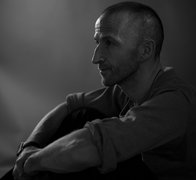
Danijel Žeželj (Zagreb, 1966.)
comic artist, painter, illustrator and graphic designer
Since I am not much of a writer, but I still have to write something when it comes to biography, the thing I would write about myself fits into exactly three words: I mostly scribble. That’s it.
